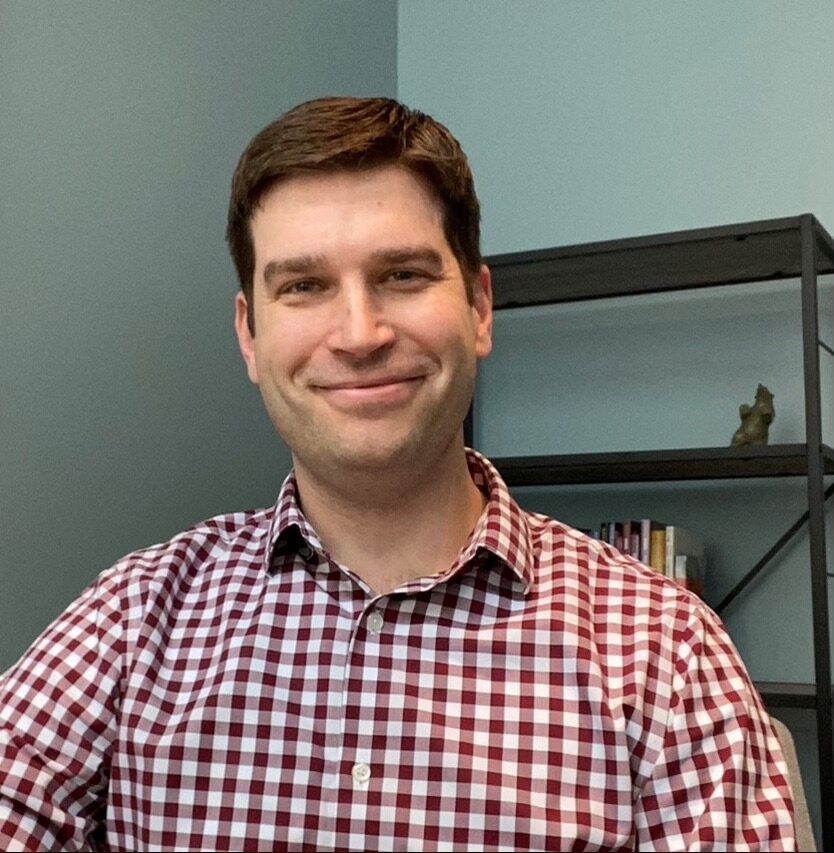For those of us working in the trauma world, specifically those of us who treat Post-Traumatic Stress Disorder (PTSD), there are a few Evidence-Based Practices that rise to the top as the gold standard of treatment. Unsurprisingly, these fall under the broader Cognitive Behavioral Therapy (CBT) umbrella. They include both Cognitive Processing Therapy (CPT) and Prolonged Exposure (PE). Many trauma therapists seek out or are sent for training. However, unless there is expert consultation and administrative support that actually helps you to implement these therapies in your practice, these valuable trainings can go to waste.
Evidence-Based Practices
As a PTSD specialist, I only offer Evidence-Based Practice EBPs in my practice. I’m not interested in doing any treatment that isn’t shown to be effective. My patients have lived with this long enough; I want to help them feel better as fast as possible….and find lasting results. This has been my area of expertise since 2007, and I’ve never looked back.
At first, the notion of treating trauma survivors- such an intimate, often messy, powerful, and transformative process- with something more “rigid” like a CBT seemed too difficult to successfully implement. However, I was fortunate to work with the best and brightest in the trauma world. I received excellent training along with weekly expert consultations. With each CPT or PE case, it went from me thinking, “Am I doing this right?” to eventually fully and successfully implementing the therapies (meaning people got better) marrying them with my own personal therapeutic style. THIS, my friends, is where the magic happens. I attribute all success I’ve had working with this population to the ongoing consultation I’ve had over the years.
Why CPT or PE?
(Quick disclaimer: I’m not going to go into CPT and PE specifics in this post. Those are in other published blog posts (here and here) on this page, and I’m happy to revisit later. Instead, I’m going to speak to why these therapies have been so appealing as a therapist.)
When I was a brand new little baby therapist, the idea of TRAUMA was a bit scary. I mean, people are going to show up with all kinds of issues, but TRAUMA seemed loosely defined, heavy, scary, permanent. Felt to me, at the time, like wtf would I even begin do with that? There was clearly a parallel process happening between myself and my early patients as I was learning to trust the process.
My Journey to Understanding the Trauma Process
What happened though, still as a brand new little baby therapist, is that I was introduced to frameworks to serve as a guide. Sort of like I getting to peek at the answers before taking a test. I was sent away to do a PE training with the Air Force, did my CPT training with my then boss/mentor, later did advanced trainings in both, all while having the luxury of weekly expert group consultation. Several clinicians would meet weekly to review cases and learn how to more effectively implement these treatments. Over time, my confidence grew, patient outcomes improved, and I found my heart work.
It wasn’t until I really learned how to operate within the CPT or PE framework and combine this with my authentic therapy style that I had a full appreciation for the power of CPT and PE. And to this day, after 16 years and counting, these are consistently the treatments I recommend to my PTSD patients. Why? They are simply the best. They work. I realize not every treatment works for every person. And I respect that wholeheartedly. However, for my folks who are tired of feeling stuck, results-focused, ready for change, and want something evidence-based, this is perfect. Oh- and I promise it IS possible to personalize each patients therapy especially to them while fully adhering to the CPT and PE protocols. I often say I’ve never had the same case twice.
The Goal of Consultation
At this point in my career and my therapy practice, I’ve enjoyed providing consultation to other providers who also work in the PTSD world for the past 6 years. These clinicians are also after something useful and effective for their patients. It feels awesome to our clients to feel better. It’s also rewarding and energizing to us as therapists as well. Having a safe place to learn, grow, and feel more confident and competent in CPT and PE is the goal of consultation.
As mental health professionals, CPT and PE providers strive to offer effective treatment for individuals struggling with PTSD. Both structured and evidence-based therapy that requires specialized knowledge and skill to deliver optimal results. The reason for this post: one essential aspect that significantly contributes to the success of CPT is consistent expert consultation. Let’s look at the importance of ongoing consultation for CPT & PE providers and how it positively impacts both therapists and their patients.
-
Strengthening Treatment Competence:
CPT and PE are therapeutic approaches that require expertise and a deep understanding of theory and techniques. Otherwise, drifting from the protocols often will happen, leading to worse treatment outcomes. Regular consultation sessions provide a safe platform for providers to enhance their treatment competence. Providers can seek guidance, clarify doubts, and receive feedback on their therapeutic approach. Consultants with extensive experience can offer valuable insights, ensuring that providers are well-equipped to implement CPT and/or PE effectively. Additionally we can tailor the treatment to individual patients needs (key ingredient).
-
Ensuring Adherence to the Model:
Fidelity to CPT and PE models are crucial for achieving consistent and positive outcomes (read that again). Expert consultation plays a vital role in ensuring providers adhere to the therapy model. Consultants can help identify any deviations or challenges in implementing therapy-appropriate techniques, offer practical solutions, and make necessary adjustments. By maintaining fidelity to the model, providers increase the likelihood of delivering effective treatment and avoid potential pitfalls or ineffective interventions. This does not, however, mean less of a personalized therapy experience!
-
Enhancing Therapist Well-being:
It’s no secret that providing treatment to trauma survivors is tough work. Engaging in PTSD therapies can be emotionally demanding for providers as they delve into the traumatic experiences of their patients. Consistent expert consultation provides a safe space for therapists to address their own issues that come up during therapy, process challenging cases, and manage their well-being. By offering support and guidance, consultants help providers navigate their emotional reactions and prevent burnout. Prioritizing therapist well-being ultimately translates into better care for our patients.
-
Continuous Skill Development:
Professional growth is a career long journey for us as therapists, and CPT/PE providers are no exception. Regular expert consultation allows providers to continuously develop and refine their skills. Consultants bring fresh insights, new research, and updated best practices to the table. Through case discussions, processing, and feedback, providers can expand their knowledge, fine-tune their therapeutic skills, and stay up to date with advancements in the field. By embracing continuous skill development, providers can offer the highest quality care to their patients. This is often what drew us to be trained initially in CPT and/or PE to begin with- to offer effective care to our patients.
-
Cultivating Peer Support and Collaboration:
Consultation sessions often involve group settings where providers collaborate under the guidance of a consultant. These environments foster peer support and collaboration, creating a valuable network of professionals. Providers can share their experiences, exchange ideas, and learn from one another. The collective wisdom and diverse perspectives enhance the quality of care provided and help alleviate feelings of professional isolation. Especially if you are in a setting where you may be the only CPT/PE clinician or in a solo practice! Collaborative consultation environments lead to improved treatment outcomes and a sense of community among providers.
Consistent expert consultation is a cornerstone of successful CPT and/or PE. It empowers us as providers to deliver effective treatment, maintain fidelity to the therapy model, address personal well-being, continuously develop skills, and encourage collaboration with peers. By embracing ongoing consultation, providers ensure that they are equipped with the knowledge, support, and resources needed to make a positive impact in the lives of individuals struggling with PTSD. Ultimately, this commitment to consultation results in enhanced treatment outcomes and a higher standard of care within the field of mental health.
Reach Out Today to Work With a CPT/PE Consultant and Gain a Better Understanding into the World of Trauma and Healing.
If you are looking to connect with a CPT and/or PE consultant, please reach out. I do offer this resource in a variety of platforms. See this page for more information! You got this!
xx,
Jenn




